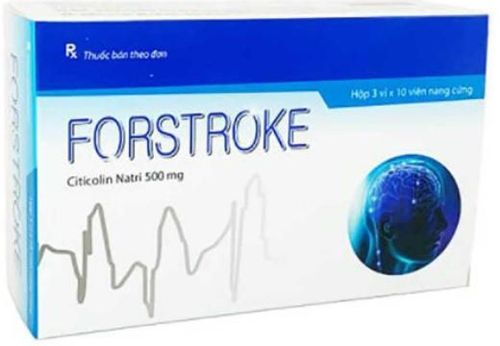This is an automatically translated article.
You are walking while listening to very adventurous music and then "Cop". It feels like your head has just hit something hard, and there's a stabbing pain, as if some stars are floating in front of your eyes. Why do you feel pain and how does your brain respond to your body? With specialist Doctor I Dao Duy Khoa, Head of Cerebrovascular Disease Unit, Vinmec Central Park General Hospital, learn how the brain and body react when pain occurs.Video is professionally consulted by Specialist Doctor I Dao Duy Khoa, Head of Cerebrovascular Disease Unit, Vinmec Central Park International Hospital
You are walking while listening to very adventurous music and then "Cop". It feels like your head has just hit something hard, and there's a stabbing pain, as if some stars are floating in front of your eyes. Why do you feel pain and how does your brain respond to your body? With specialist Doctor I Dao Duy Khoa, Head of Cerebrovascular Disease Unit, Vinmec Central Park General Hospital, learn how the brain and body react when pain occurs.
1. What is pain and how does the body respond to pain?
Let's say it took you ten minutes to solve a 3rd grade math problem. How long would it take to solve this problem if you were electrocuted repeatedly in your hand? Probably longer, right? Because the pain will distract you from the task. Well, maybe not, it depends on how you handle the pain too.There are some people who are distracted by the pain. They take longer to complete a task and do it worse when in pain. However, some people use other ways to help themselves get rid of the pain, and they are better able to accomplish the task when they are in pain. Oh, it's hard to believe, isn't it?
Some people may scatter their thoughts to help relieve pain. So how can different people suffer the same exact blow but experience such different pain? And why is this important?
First of all, what is pain? Pain is a sensory experience, that is, an unpleasant sensation, associated with actual or potential tissue damage. Each of us has experienced pain, so pain is best measured by what you feel. To measure pain intensity, you can describe it on a scale of 0 to 10, i.e. from not feeling pain to the most pain imaginable (your own). However, pain has many characteristics such as sharp, dull, burning or aching. What exactly is causing these painful sensations? When you are injured, specialized nerve cells will recognize the damaged tissue, through the receptor, then generate a nerve signal and send this signal to the spinal cord, then the signal is transmitted to the brain. The processing work to perceive pain is done by nerve cells located in the gray matter area of the brain. The brain's pathways carry information in the form of electrical impulses from one area to another, called the white matter. White matter pathways carry pain information from the spinal cord to the brain. The sensory brain helps you perceive pain, and other interconnected systems in the brain help you decide what to do with the pain.

Cơ thể đối diện với những cơn đau
2. How does the brain react when you are in pain?
Pain can be the result of severe tissue damage, and pain signals trigger many processes in the brain. The brain responds to pain and produces appropriate reflexes to these pain signals. So the pathways from the brain to the muscles are activated to take your hand out of a cup of hot water, for example. But the network of endorphins and enkephalins is also activated, chemicals that are also released when you are in pain or when you exercise.These chemicals help regulate and relieve pain. All of these networks work together to induce pain, help you cope with pain, and prevent tissue damage. The system is the same for everyone, but the sensitivity and effectiveness of these signals determine how well you feel and deal with the pain. This is why some people have more pain than others and why some people have chronic pain that doesn't respond to treatment, while others do.
Differences in pain sensitivity are similar to differences in reactivity to all other types of stimuli. Like some people ride a roller coaster with no discomfort, but others have terrible motion sickness. Why is there a difference in our pain perception? Well, there are many treatments for pain, which target different systems.
For common pain, painkillers have an anti-inflammatory effect in the damaged area, where pain receptors are activated to produce pain signals
Some people can control pain by using methods that involve distraction, relaxation, meditation, yoga, or cognitive behavioral therapy. However, for some people with chronic pain, it's possible that the pain won't go away after their wound has fully healed and conventional treatments won't work. In that case, other more intensive pain treatments will be used by your doctor.
Please dial HOTLINE for more information or register for an appointment HERE. Download MyVinmec app to make appointments faster and to manage your bookings easily.













